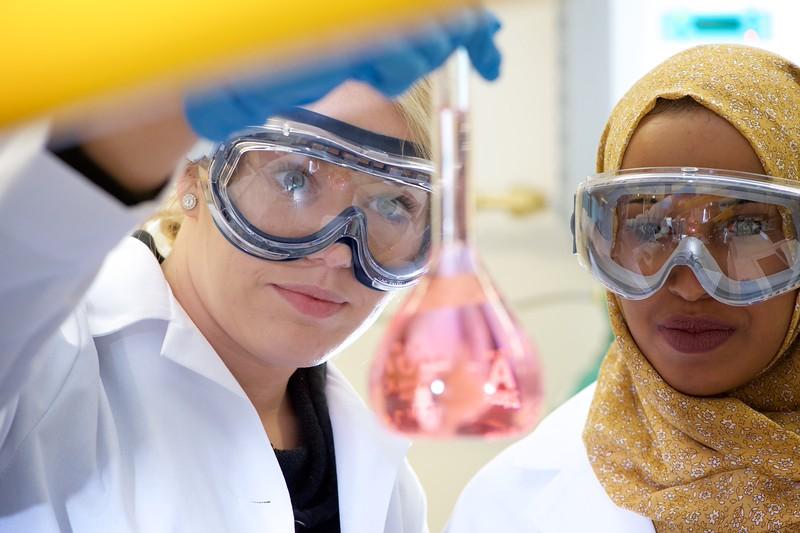Current students: Declare this program
Once you’re admitted as an undergraduate student and have met any further admission requirements your chosen program may have, you may declare a major or declare an optional minor.
Future students: Apply now
Apply to Metropolitan State: Start the journey toward your Chemistry BS now. Learn about the steps to enroll or, if you have questions about what Metropolitan State can offer you, request information, visit campus or chat with an admissions counselor.
Get started on your Chemistry BS
More ways to earn your degree: Metropolitan State offers the flexibility you need to finish your degree. Through programs at our partner institutions, you can find a path to getting your Chemistry BS that works best for you.
Program eligibility requirements
Students expressing interest in the Chemistry BS major when they apply for admission to the university will be assigned an academic advisor in the Natural Sciences Department and will be given premajor status
To be eligible for acceptance to the Chemistry BS major, students must submit a College of Sciences Undergraduate Program Declaration Form when the following is completed:
- Prerequisites and Premajor Foundation courses of CHEM 111 General Chemistry I, CHEM 112 General Chemistry II
All prerequisite and required courses must be completed with grades of C- or above. Transfer coursework equivalency is determined by the Natural Sciences Department.


